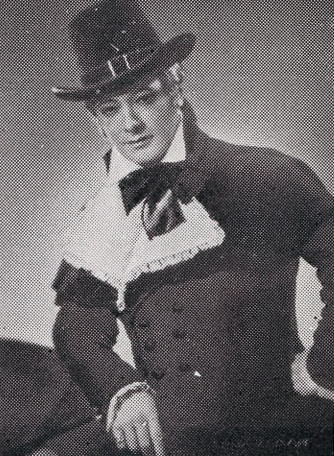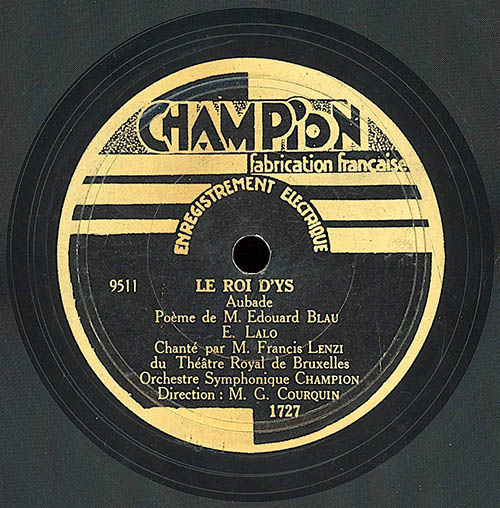A native of Algiers, he was primarily an operetta tenor, and only occasionally appeared in opera. His most successful role was Sou-Chong.
He must have started his career in the early 1920s in Algiers, where he had studied with soprano Céleste Gril. In October 1923, he
made his Paris debut at the Trianon-Lyrique as Nadir (a role that went far beyond his typical repertory).
For the most part, his career evolved in the South of France: Montpellier, Avignon, Toulouse (both at the Théâtre des
Variétés and the Théâtre du Capitole), Marseille (Variétés), as well as in Algiers (then French,
too, of course) – most always in operetta, lots of Lehár, lots of Audran. He also appeared in Lausanne (1930) and Rio de
Janeiro, where he sang secondary operatic parts at the Teatro Municipal in 1939 (Nicias in Thaïs, Noctambule/Pape des fous in
Louise). He also sang on the radio.
In early 1932, he signed a contract with the Paris Opéra-Comique; but it would seem that this contract was, for whichever
reason, never fulfilled, since Lenzi is not listed in Stéphane Wolff's reference book on that theater. He is also missing from
the online archives of the Brussels Théâtre de la Monnaie, although he was sometimes billed, in the 1940s, as a member of
that theater; this may very well be due to the fact that those online archives are sorely incomplete for all dates prior to 1945. In
the early 1940s, Lenzi must also have sung at the Gaîté-Lyrique in Paris since he was regularly advertised as having
appeared there; plus he sang in Troyes (1940 and 1941) and Lille (1942, Théâtre Sebastopol): his career had shifted to the
North.
After World War II, he sang on at least until 1951 both on the radio and on stage: in Nancy, Avignon, Gent or Liège.
In October 1952, the venerable theater of Nîmes, built in 1798, burned down – more precisely: was burned down, by a singer.
The aging Belgian contralto Eva Closset, who had found a place in the theater's chorus, was trying to push her young
protégé, a would-be tenor who was so totally hopeless that he managed to stand out, negatively, from the chorus into which
one of the two managers of the theater had accepted him, at the behest of Closset. After a few performances, the manager realized his
mistake, and fired the handsome young non-tenor – and Closset was so upset that she set fire to the theater. The unhappy theater
manager's name: Francis Lenzi. I bet this was "our" Lenzi.
References:
- Claude-Pascal Perna's Flickr channel
- www.museusdoestado.rj.gov.br
- www.nemausensis.com
- www.forumopera.com
- Valabris Istoria
- Comoedia, 14 October 1936
- L'Écho d'Alger, 30 October 1923, 20 December 1930, 13 February 1932, 27 February 1934 & 29 April 1938
- L'Est Républicain, 30 September 1948
- La Gazette Provençale, 17 February 1948
- Le Midi Socialiste, 18 February 1928
- Le Petit Marseillais, 14 June 1933
- Le Petit Méridional, 14 October 1929, 20 February 1930, 13 March 1934 & 9 October 1935
- Le Petit Troyen, 12 December 1940 & 16 November 1941
- Les Tablettes d'Avignon et de Provence, 26 September & 3 October 1937
- Time Magazine, 10 November 1952
- La Vie Montpelliéraine, 15 September 1928
Picture source: La veuve joyeuse playbill, Théâtre Sebastopol, Lille, 1941/42 season



